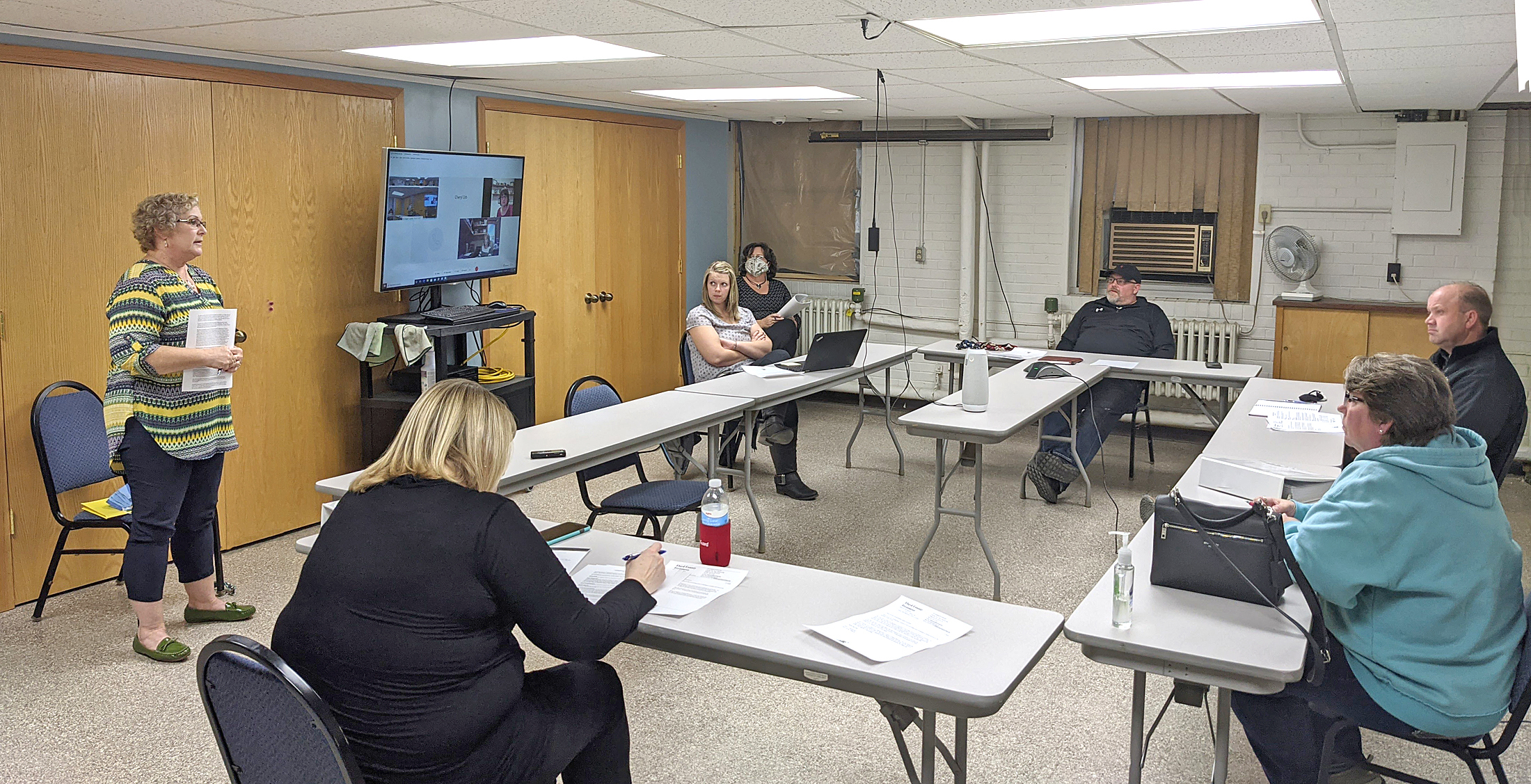Floyd County Compensation Board digs in to elected officials’ salaries

By Bob Steenson, bsteenson@charlescitypress.com
Members of the Floyd County Compensation Board began the task Wednesday afternoon of coming up with recommendations for county elected officials’ salaries in the next fiscal year.
Much of the discussion involved the nature, purpose and guidelines for the board itself.
By Iowa law, compensation boards are made up of members appointed by the county elected officials, and meet annually to make a recommendation to the county board of supervisors regarding how much the elected officials (including the supervisors) should be paid.
Several county officials made presentations at the meeting Wednesday, explaining their duties and changes in the past year, or just offering comments on the job.
County Recorder Deb Roberts and County Auditor Gloria Carr both explained how COVID-19 had affected their offices.
Supervisors Roy Schwickerath and Linda Tjaden both urged the compensation board to look at the offices rather than the persons currently occupying those offices in deciding what the position should be paid.
“Look at what they should be paid individually, not in comparison to others in the courthouse,” Schwickerath said.
“Try to look at the position and not the people and do the best you can,” said Tjaden.
County Treasurer Frank Rottinghaus did not attend, but sent a letter that concluded with, “Please consider my position and its level of responsibility by itself and not lump it together with other positions just because the offices are located close together in the building.”
Several members of the compensation board commented that in this year of COVID-19, some businesses have seen revenue fall, and some businesses have frozen salaries.
“We are appointed by the elected officials, but we’re still representing taxpayers,” said Scott Tjaden, appointed by Rottinghaus.
Danielle Ellingson, appointed by County Attorney Rachel Ginbey, wondered if they should be looking at the revenue available to the county this year.
“If we’re supposed to look at the private sector and the private sector is freezing salaries that’s something we should look at,” she said.
But Carr said the portion of the Iowa Code that sets up compensation boards says the boards are supposed to come up with a pay level by comparing it to what similar positions are currently paying in public and private organizations.
Board member Lisa Garden, appointed by Carr, read from the code that “the county compensation board annually shall review the compensation paid to comparable officers in other counties of the state, other states, private enterprise and the federal government.”
Supervisor Schwickerath said it’s up to the compensation board to determine what each position should be paid by comparing it to similar positions, but then it’s up to the Board of Supervisors to decide what the county can afford.
By law, the supervisors can accept the compensation board’s pay increase recommendations as they are submitted, or reduce them, but the supervisors cannot approve pay increases higher than those recommended by the compensation board.
If the supervisors choose to reduce the recommended pay increases, they must do so for each elected county official by an equal percentage.
“The supervisors have the ability, if the dollars aren’t there, to take it all the way down to zero,” Schwickerath said, meaning no pay increases.
The supervisors would have to reduce their own pay increase by at least the same percentage as they reduce the other offices, but they can also reduce their own pay even further if they choose to.
Carr said, “I know you all are business people and it’s hard not to want to take that total package of how do we make this work in a budget, are we going to increase taxes? But that lies on the Board of Supervisors.”
Garden said part of the responsibility of being on the compensation board is to be in touch with the officer that appointed them and get their input on potential pay increases.
Supervisor Tjaden said, “Certainly COVID has made things very complicated this year, for every department, every county employee. What we have to keep in mind for every elected official, they were elected to perform services. There’s a clear expectation of the work that needs to get done and did they do it?
“I think most have done a great job, but I think we need to clearly say, in difficult times, this is when you shine or can show some of the areas where we need some work. … They were elected by the citizens and so there is a clear expectation that they are doing their job,” she said.
Early in the meeting Carr handed out information from the Iowa State Association of Counties listing the salaries paid each elected official in each of Iowa’s counties and showing where their salaries rank compared with the other same office holders.
For Floyd County, here are the current office holders, their current salaries, where those salaries rank among the 99 counties for the same office, and their pay increases for the current fiscal year (Floyd County ranks 49th in population):
- Supervisors Doug Kamm, Linda Tjaden and Roy Schwickerath — $40,098 each, 18th, 2%.
- Attorney Rachel Ginbey — $106,971, 35th, 2.5%.
- Auditor Gloria Carr — $68,810, 32nd, 2.5%.
- Recorder Deb Roberts — $68,586, 24th, 2.5%.
- Sheriff Jeff Crooks — $91,229, 30th, 2.5%.
- Treasurer Frank Rottinghaus — $68,586, 29th, 2.5%.
The members of the compensation board made no recommendations Wednesday for salary increases. Their next meeting will be 4 p.m. Wednesday, Dec. 16, at the courthouse.









Social Share